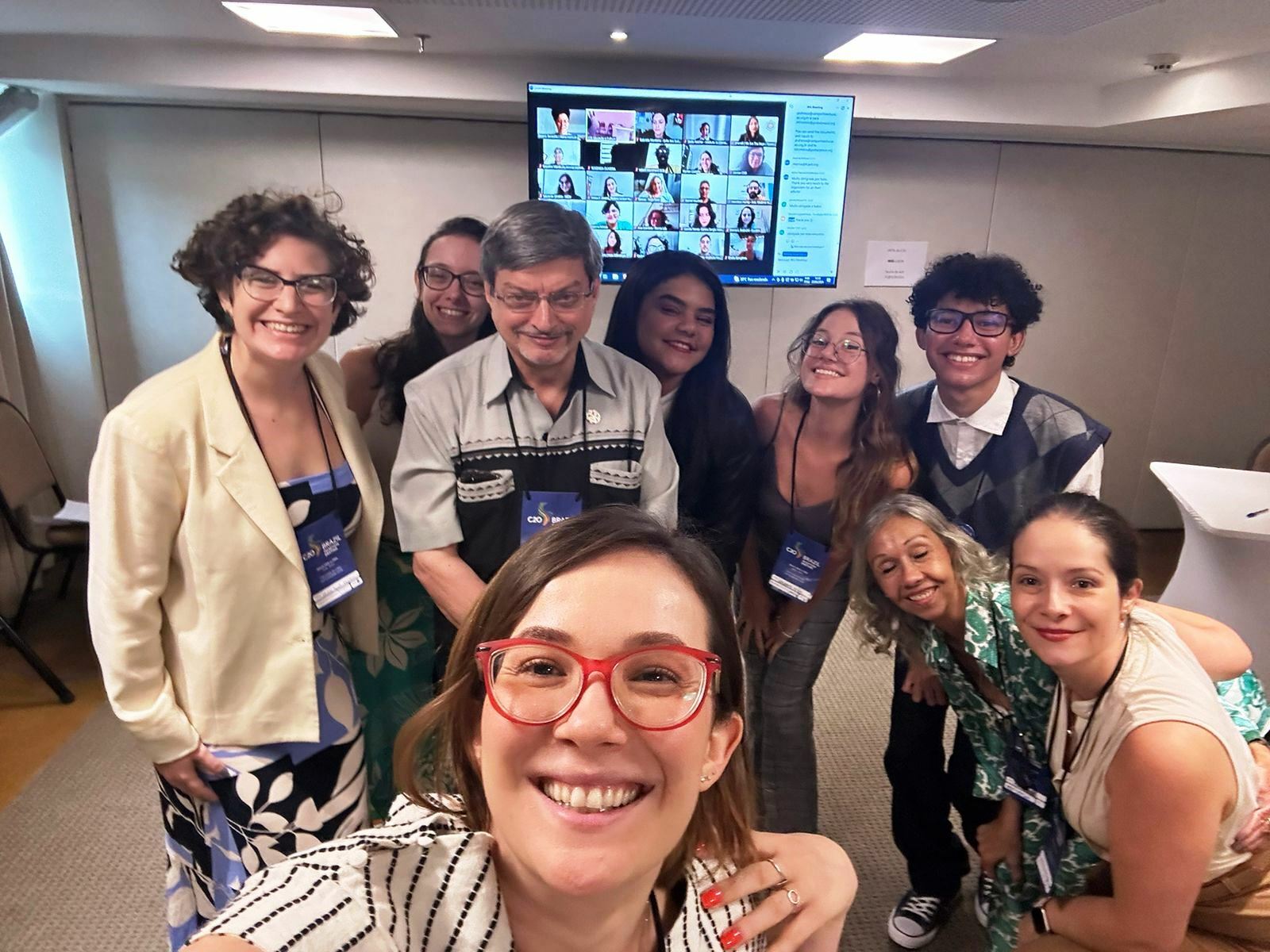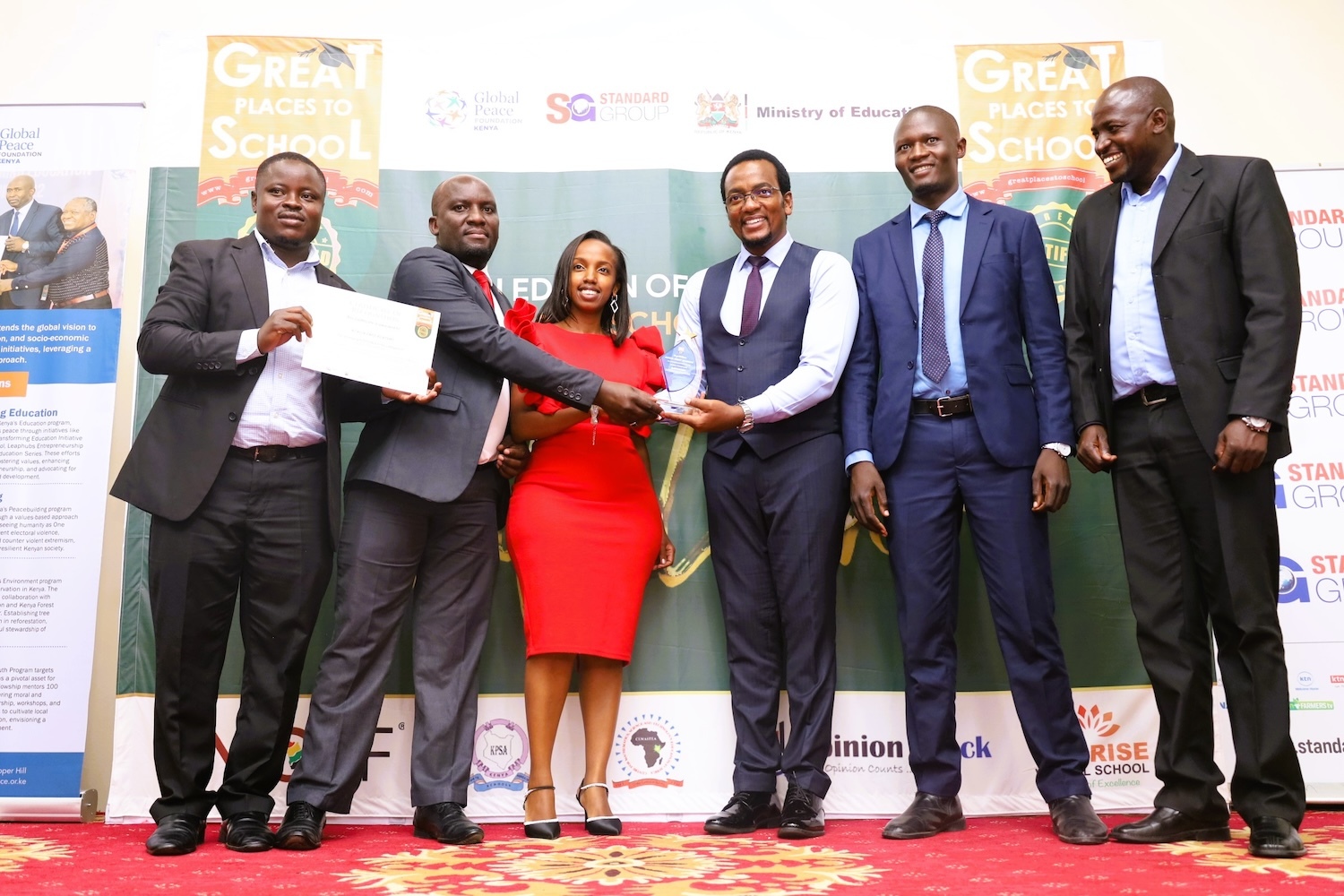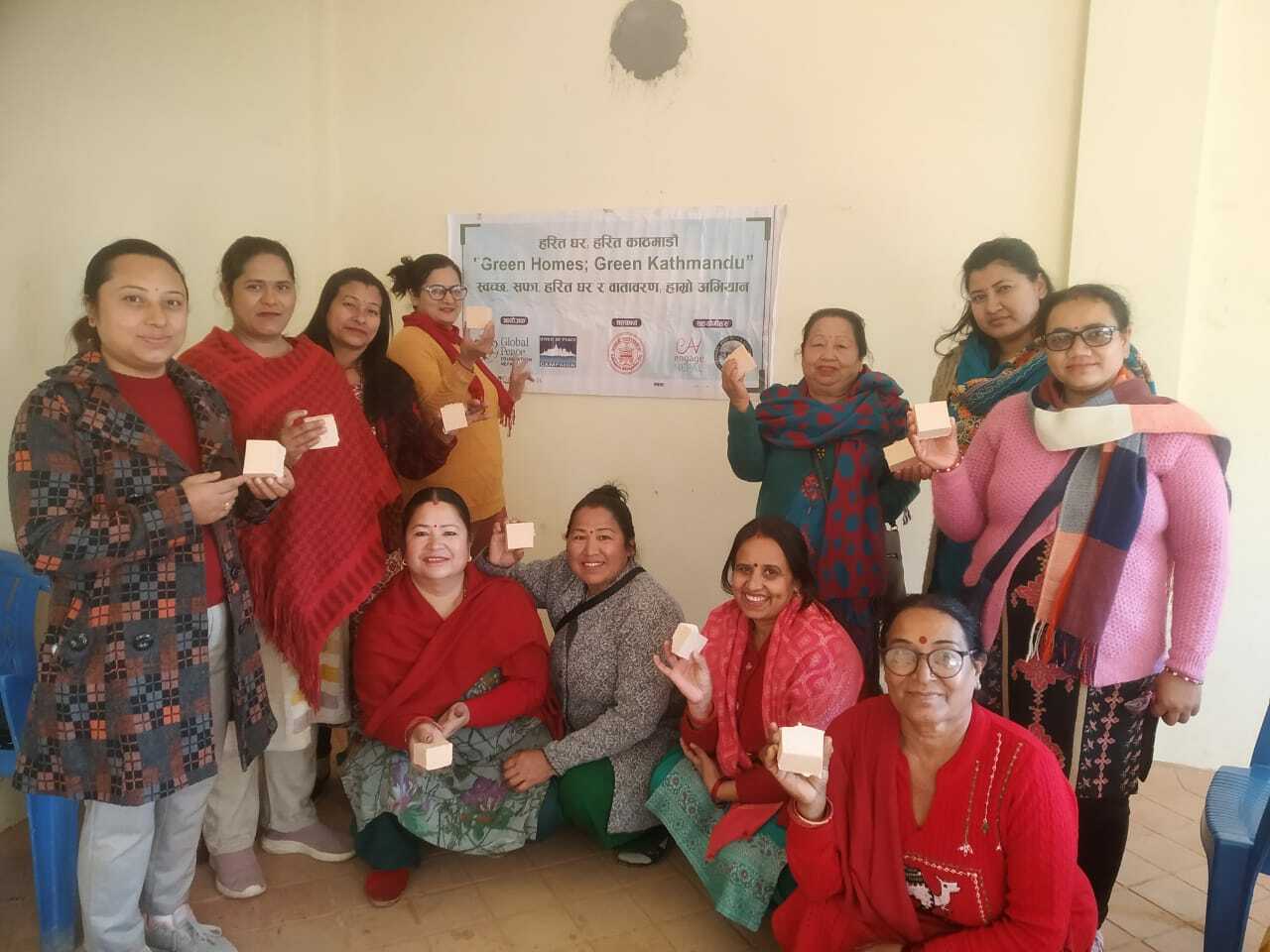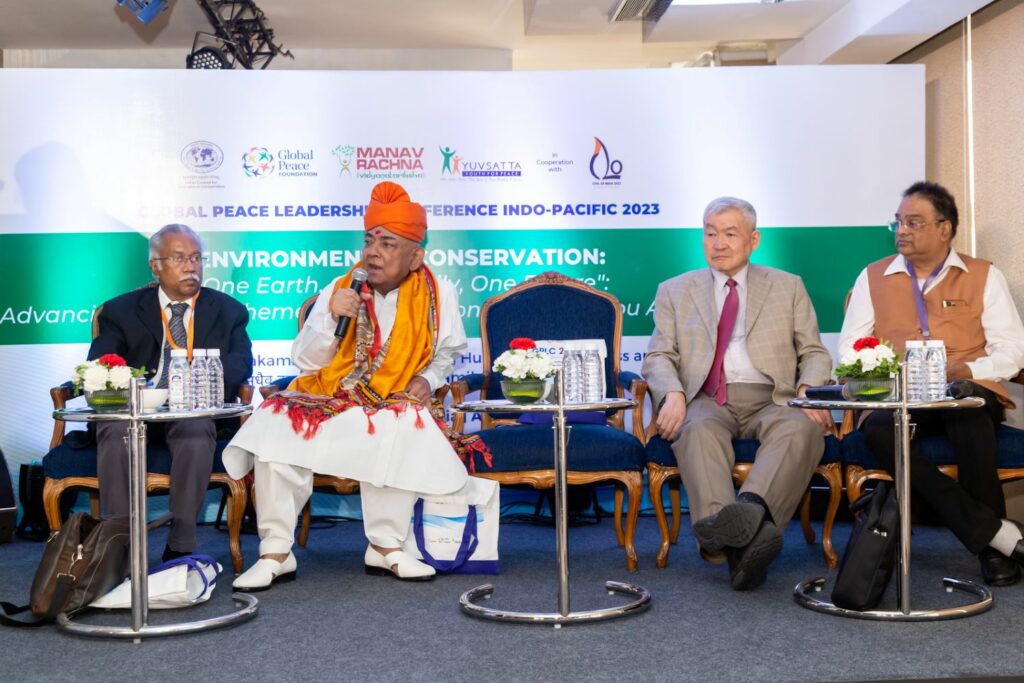
From left: Prof. Vinod Menon, Advisory Board Member of Quantectum Earthquake Forecasting Center &C-20 Working Group; Coordinator; Dr. Priya Ranjan Trivedi, India Confederation of Universities; Amb. Enkhsaikhan Jargalsaikhan, former Mongolian Ambassador to the United Nations and Chairman of Blue Banner
Environmental threats are worsening globally in significant measure as many conflict zones are also located where biodiversity is at its greatest. Peace is necessary for conservation, yet it is frequently forgotten how nature itself may support mediation of conflicts. This track examined best practices and promoted action on environmental stewardship and conservation, building on the good record of programs including Ganga/watershed preservation, Swachh Bharat Mission, recycling and solid waste innovation, mass tree planting and the Blue Economy, furthering UN Sustainable Development Goals on the environment and peace.
Session I: Environmental Threats, Impacts, and Call to Action
Critical environmental impacts of dramatic human population growth and rapid development clearly are significant factors affecting peace and security, often leading to food insecurity, large scale human migration, and related issues. Creative, collaborative efforts are needed on every level to reduce environmental degradation and build sustainable practices to protect the earth as the essential home for the human family. This track examined best practices and promoted action on environmental stewardship and conservation, building on the good record of programs including Ganga/watershed preservation, Swachh Bharat Mission, recycling and solid waste innovation, mass tree planting and the Blue Economy furthering UN Sustainable Development Goals on the environment and peace.

Top left: Samuel Budoi, Global Peace Foundation Kenya’s Project Coordinator, right: Amity University Prof. Tanu Jindal
The session was chaired and moderated by Dr. Priya Ranjan Trivedi from the India Confederation of Universities, and featured speakers included Ambassador Enkhsaikhan Jargalsaikhan, former Mongolian Permanent Representative to the United Nations and Chairman of Blue Banner; Professor Tanu Jindal, Group Pro Vice-Chancellor (R&D) and Director of Amity Environmental Institutes at Amity University; and Professor Vinod Menon, Advisory Board Member of Quantectum Earthquake Forecasting Center and C-20 Working Group Coordinator. These speakers discussed the environmental impact of rapid human population growth and development.
Session II: Environmental Conservation: Environmental Models for Scalable Action Achieving 2030 Goals
This session reviewed and described current environmental conservation projects that the speakers have directed in their respective countries. Participants reflected on the strengths and promising practices of the projects, proposed recommendations for policy (C-20) and upscaling models, as well as how similar efforts can be made in their home communities.
The session was chaired and moderated by Dr. Anil Jaggi, CEO of Conscious Ventures, and highlighted local projects in Nepal, India, and Kenya. Global Peace Foundation Nepal’s Environmental Specialist Ms. Shrijana Sitikhu presented an overview of environmental projects in Nepal; Blue Waste to Value’s approach was presented by Co-Founder and CEO Mr. Nabin Bikash Maharjan; Kenya Million Trees Initiative was presented by Mr. Budoi Samuel, Project Coordinator from Kenya GPF, and CSR presented by Mr. Naveen Prathapaneni, CSR Ambassador at IBM. Their presentations addressed the United Nation’s Sustainable Development Goals that focus on clean water, sustainable and clean energy, and life in the water and on land .
Environmental conservation requires personal responsibility and action, speakers emphasized, and the session presented a range of actions that individuals around the world can take to advance environmental conservation.
Session III: Environmental Conservation: Policies and Scalable Initiatives: Recommendations for C-20 and the New Delhi Declaration
This session summarized the key action points from the previous sessions as well as presented proposals for tangible action to advance environmental protections. Speakers and participants brainstormed realistic policies and initiatives that can be presented to C-20 and applied in the New Delhi Declaration.
Following a special presentation by Hon. Ashwini Kumar Chaubey, India’s Minister of State for Consumer Affairs, Food and Public Distribution, and Environment, Forest and Climate Change, Shri Ramesh Negi, IAS Officer (Retired), chaired the final session of the track. The session was moderated by Dr. Chiranjibi Bhattarai, Faculty of Environmental Law, Policy and Governance at Nepal Open University, and featured Dr. Maneesha Ramesh, Provost of Strategic Initiatives, International, Research and Innovation, AI + X at Amrita University, and Dr. Markandey Rai, Chairman of Global Peace Foundation India. The speakers summarized the discussions from previous sessions and focused on the path forward toward implementing action points through policies, especially through C20 and India’s presidency of the G20.

From left: Dr. Maneesha Ramesh, Provost of Strategic Initiatives, International, Research and Innovation, at Amrita University and C-20 Working Group Coordinator; Mr. Ashwini Kumar Chaubey, India’s Minister of State for Consumer Affairs, Food and Public Distribution, and Environment, Forest and Climate Change Below: Dr. Markandey Rai, Chairman of Global Peace Foundation India, addresses Session II.
Outcomes
A notable and immediate outcome of the Environmental Conservation deliberations was the track’s contribution to the New Delhi Declaration, presented during the concluding session of GPLC-2023 on April 13. Significantly, the Declaration affirms that greater global cohesion with Vasudhaiva Kutumbakam can serve to encourage ongoing discussions to promote international cooperation to solve global problems of environmental conservation and other challenges. As this track’s speakers discussed, one of the essential global issues that must be addressed is climate change and the effect it has on all populations, by incorporating innovative grassroots models and policy recommendations in a global campaign.

Left: Shri Ramesh Negi ,IAS Officer (Retired), chaired the final session of the track. Right: Dr. Chiranjibi Bhattarai, Faculty of Environmental Law, Policy and Governance at Nepal Open University
The track’s speakers covered a range of significant models that contribute towards countering climate change and building sustainable communities. These projects, which were also listed in the Declaration, include the Million Trees Campaign in Kenya; Green Homes and Smart and Green Cities in Nepal, as well solid waste management initiatives; engaging the local and international community to address desertification in Mongolia, and applying the concept behind Blue Economy to link the preservation of oceans with the work to preserve rivers such as the sacred Ganga as well as forests and fauna.
Further in the document, delegates are encouraged to pledge their commitment to an Action Plan, specifically the implementation of strategies that upscale grassroots environmental conservation initiatives across nations.
Moving forward from GPLC-2023, these initiatives will be presented at the C-20 Sustainable Communities Working Group at Sikkim and beyond to further actions towards environmental conservation in a global campaign including global peace corps approaches.
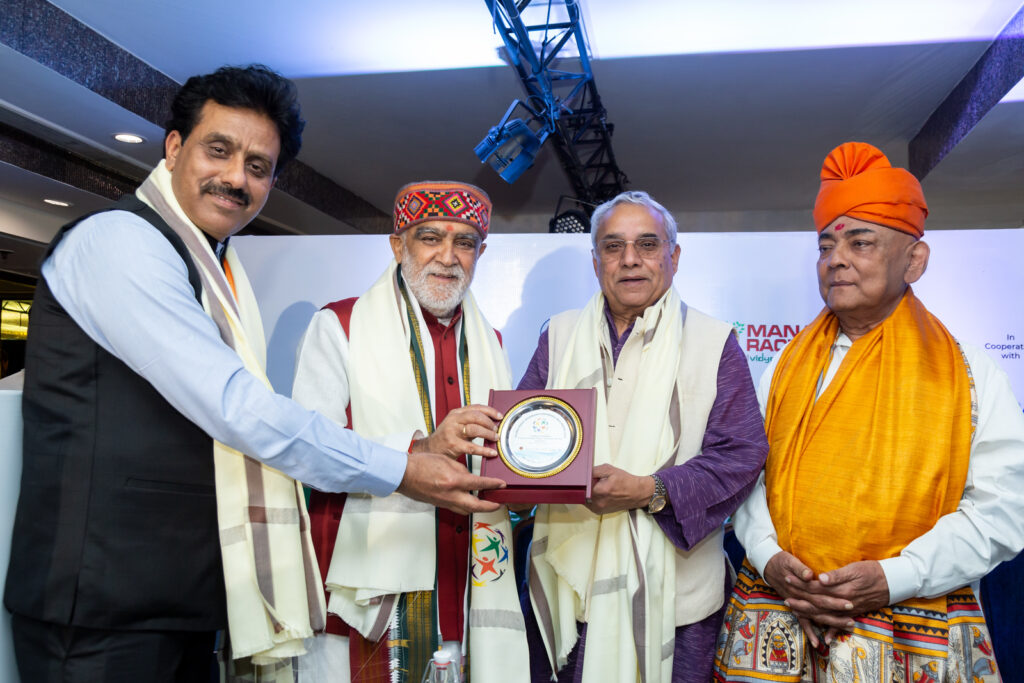
From left: Dr. Anil Jaggi, CEO of Conscious Ventures; Minister Ashwini Kumar Chaubey; Dr. Markandey Rai, Chairman of GPF India; Dr. Priya Ranjan Trivedi.

